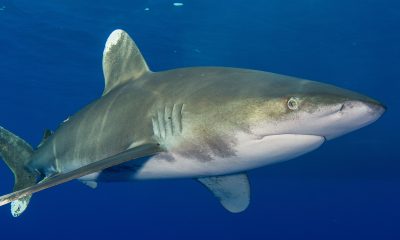News
How involved is Australia in the Global Shark Fin Trade?
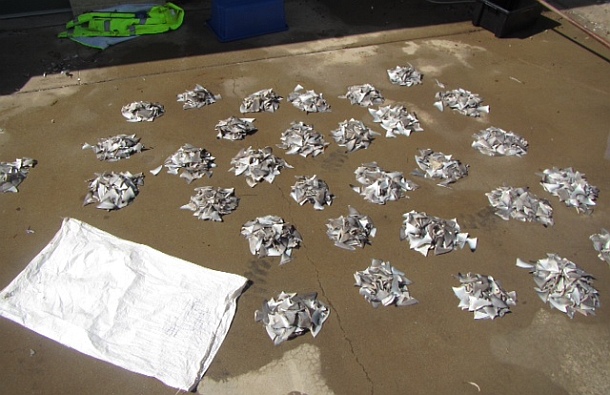
Marine conservationists have renewed calls for an outright ban on shark fins in Australia.
Earlier this month a Queensland recreational fisherman was fined $7,750 after being caught with 3,206 shark fins suspected of being destined for the black market.
It is believed to be Australia’s largest ever haul of illegal shark fins.
The Australian Marine Conservation Society (AMCS) says it’s time for Australia to end its involvement in the international shark fin trade and is also calling for tougher penalties for those who illegally harvest shark fins in the country.
AMCS marine campaigner Tooni Mahto says current penalties don’t serve as a deterrent because shark fins have such a high value.
‘So the incentive is still out there for others to do the same,’ she says.
‘Shark fin soup is available on pretty much any Chinese restaurant menu. It may not be advertised on menus but the availability of shark fin soup is still there in restaurants.
‘If you go to Chinatown in Sydney and Melbourne you can see the very big shark fins with a $1,000 price tag, and you can also buy jars of smaller, cheaper shark fins for up to $700 to $800.’
The high price tag reflects the cultural value of shark fins, which have traditionally been served by the Chinese at special functions to show the wealth of the host and respect for their guests.
As the Chinese middle class has expanded, so has the demand for shark fins which has grown around 5 per cent a year since the mid-‘90s.
The International Union for the Conservation of Nature (IUCN) has determined that approximately a third of open ocean sharks are currently threatened with extinction.
Mahto says the international shark fin trade is responsible for the decline in many shark populations, especially species with large fins such as great whites and whale sharks.
‘It can be traced directly back to the shark fin trade,’ she says.
The Queensland fisherman’s crime and subsequent conviction has raised questions about the extent of illegal shark fishing in Australia. He was one of three fisherman arrested after a raid on their Maryborough fishing shack in April last year after a public tip-off about illegal mud crabs.
Queensland Boating and Fisheries Patrol district manager Greg Bowness says the discovery of so many shark fins surprised the authorities but believes it’s an unusual case and doesn’t point to a bigger problem – but Mahto isn’t convinced.
“My feeling is that it suggests there is more activity going on that we simply don’t know about,” she says.
In the Maryborough case, authorities could not determine whether the shark fins were to be sold locally or on the overseas market, nor how the shark fins were harvested.
Live shark finning, the practice of cutting fins from live sharks and dumping their bodies, is illegal in all jurisdictions in Australia, but marine conservationists have accused Australia of being complicit in the cruel trade by allowing imports of shark fins that cannot be traced to their source.
Data for shark fin imports to Australia has only been available for the past couple of years. Australia imported 23 tonnes in 2013 and 18 tonnes in 2014.
Mahto says it’s highly likely those imports include fins harvested from live sharks.
“Shark fin can be traded from one port to another before it is imported to Australia so it’s really hard to know if we’re importing shark fin from countries like India and Indonesia that still allow live shark finning,” she says.
“If we’re importing shark fins from such countries then we’re still supporting that practice, albeit not around our own shores.”
NSW Greens MP Mehreen Faruqi believes most shark fin imports to Australia are harvested from live sharks.
Last month Faruqi introduced a private members bill into the NSW Parliament seeking to amend the Food Act to make it an offence to possess, sell, prepare or process shark fins or any shark fin derivative.
“It would basically ban any shark fin soup being served in restaurants,” says Faruqi.
The Greens MP says there is strong community support for such a ban, but the numbers in parliament are uncertain.
“There are discussions going on about when the bill might be debated and how much support we might have, so we’re building on that and hopefully the government will come on board with majority community opinion.”
Her ultimate aim is an Australia-wide ban on shark fin imports.
“NSW can lead this action by showing that something can be done at a state level. Other states can follow, and hopefully we can push the Australian government to look into the ban of the possession, sale, and trade of shark fin in Australia,” she says.
As well as importing shark fins, Australia also exports them. Between 2011 and 2012 Australia exported 178 tonnes, but in recent years the export market has declined.
In 2013 there were no shark fin exports, and in 2014 just one tonne was exported.
The AMCS doesn’t believe the drop in exports means fewer sharks are being killed in Australian waters. The organisation suspects fins are being stockpiled until prices improve.
The recent drop in demand for shark fins is being attributed to effective public campaigns and a corruption crackdown in China.
“It does look like there has been some impact from public education campaigns using high profile figures like Hollywood actors and Chinese celebrities to change people’s behaviour,” says Mahto.
“But the Chinese government also has a big anti-corruption drive. Shark fin has been banned from being served at public political events and that seems to have had a real impact on the price of shark fins and as a knock-on effect the international trade.”
The AMCS has a long running campaign for an outright ban on shark fins in Australia. Mahto says such a ban would provide absolute certainty that Australia is not importing shark fins from countries that still allow live finning.
“That’s an important conservation outcome,” she says, “but it’s also a very public statement that Australia does not support the inhumane trade and it’s recognition that the value of sharks is in keeping ecosystems healthy rather than being served up as soup.”
Source: www.marineconservation.org.au
Blogs
EXCLUSIVE: Jeff Goodman interviews Mark Spiers, CEO of New Scuba Diving Training Agency NovoScuba
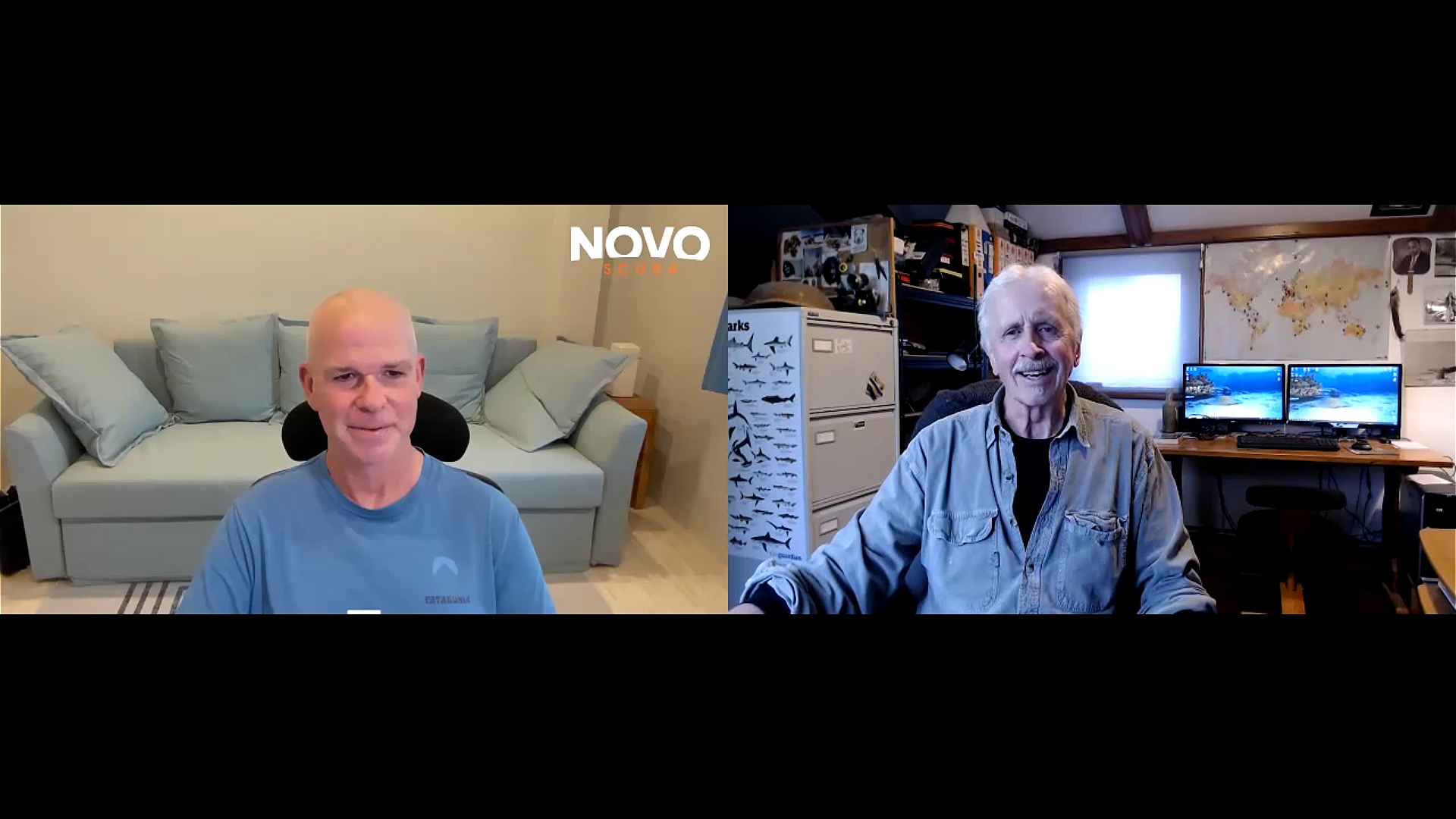
In a video recorded exclusively for Scubaverse.com, Jeff Goodman interviews Mark Spiers, CEO of new scuba diving training agency NovoScuba.
Find out more about NovoScuba at www.novoscuba.com.
News
Charting New Waters; NovoScuba Goes Global with the Launch of their Revolutionary Dive Training Agency!
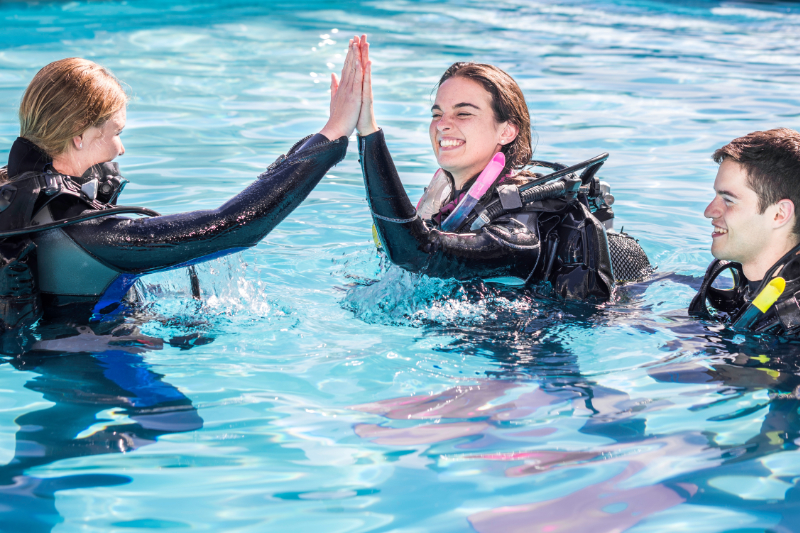
Discover a New Era of Dive Education: NovoScuba Brings Innovation to the Surface! Fully ISO Certified and Equipped with Cutting-Edge Technology.
 With a combined experience spanning over a century in the diving industry, a team of accomplished dive store owners, managers, and professionals unveils NovoScuba, a ground-breaking dive training agency poised to redefine the benchmarks of underwater education. Launching in May 2024, NovoScuba promises a revolutionary approach to dive training. Their vision is to make diving accessible to everyone, share success within the dive community and emphasise positive interactions with the planet.
With a combined experience spanning over a century in the diving industry, a team of accomplished dive store owners, managers, and professionals unveils NovoScuba, a ground-breaking dive training agency poised to redefine the benchmarks of underwater education. Launching in May 2024, NovoScuba promises a revolutionary approach to dive training. Their vision is to make diving accessible to everyone, share success within the dive community and emphasise positive interactions with the planet.
NovoScuba’s global debut marks a significant milestone in the dive industry. Driven by a vision to challenge convention and harness the power of technology, NovoScuba aims to revolutionise the dive training landscape through its innovative business model, which is digitally native, making it the most technologically advanced dive training agency to date.
“We recognised the need for change in the dive training industry and saw an opportunity to leverage technology, and redefine existing business models to create something truly innovative,” said Mark Spiers, CEO of NovoScuba.
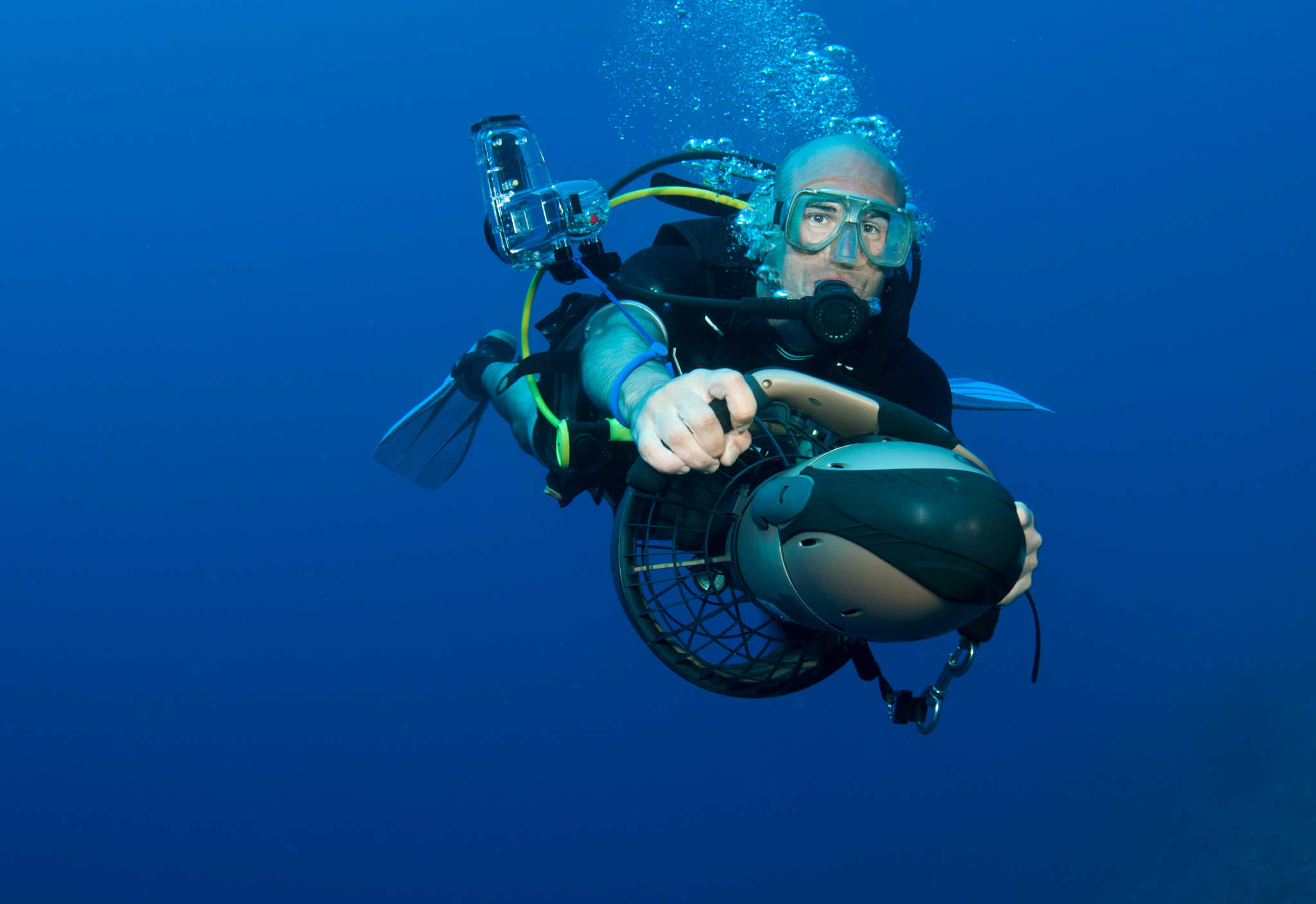
NovoScuba’s platform offers state of the art training programmes ranging from introductory up to professional diving, including various specialties. All programmes meet international standards and ISO certifications are in place. This commitment to shared success, accessibility and positive results for the planet, all at a cost effective and affordable level, is what will make NovoScuba stand out.
“Our deep understanding of traditional pain points for the industry, combined with our digitally native approach positions NovoScuba as a game-changer in dive education. Offering unparalleled initiatives such as student subscription, open access to all course materials, pay as you certify, no stock required, monthly membership payments, payment in local currencies, one-click certifications, and membership freezing, NovoScuba is set to redefine the industry. Available in 13 languages, at launch, the NovoScuba courses are written for the modern divers, with a focus on up-to-date content, interactive learning, and an engaging platform,” Mark Spiers concluded.
NovoScuba is challenging a change in the industry, redefining established traditional systems, and ushering in a new standard of excellence, support, and partnership. Their collaborations with dive stores, pros and underwater enthusiasts won’t demand exclusivity, prioritising earned loyalty, and an understanding that their Member’s success is key to their own.
NovoScuba
Diving Redefined.
-

 News3 months ago
News3 months agoCapturing Critters in Lembeh Underwater Photography Workshop 2024: Event Roundup
-

 Marine Life & Conservation Blogs3 months ago
Marine Life & Conservation Blogs3 months agoCreature Feature: Swell Sharks
-

 Blogs2 months ago
Blogs2 months agoMurex Resorts: Passport to Paradise!
-

 Blogs2 months ago
Blogs2 months agoDiver Discovering Whale Skeletons Beneath Ice Judged World’s Best Underwater Photograph
-

 Gear Reviews3 weeks ago
Gear Reviews3 weeks agoGEAR REVIEW – Revolutionising Diving Comfort: The Sharkskin T2 Chillproof Suit
-

 Gear Reviews3 months ago
Gear Reviews3 months agoGear Review: Oceanic+ Dive Housing for iPhone
-

 Marine Life & Conservation2 months ago
Marine Life & Conservation2 months agoSave the Manatee Club launches brand new webcams at Silver Springs State Park, Florida
-

 News2 months ago
News2 months agoPADI Teams Up with Wellness Brand Neuro to Drive Ocean Change and Create a Blue State of Mind













